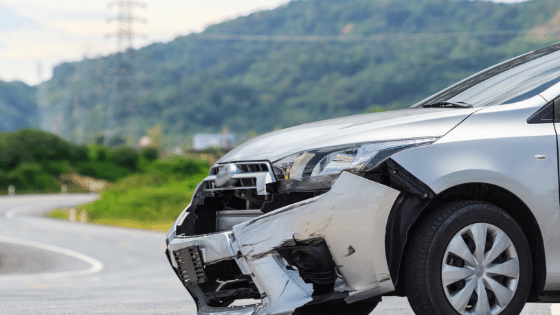What to Do if You’ve Been Injured in a Hit and Run Accident in Florida
Florida is the 3rd largest state in the country, by population. With so many people living in the state, it’s no surprise that the number of car accidents per year is staggering, at over 400k for 2017. Of those 400k accidents that occurred 98,000 were hit and run accidents. If you are one of the many people who has been the victim of a hit and run accident in the state of Florida, you’re undoubtedly asking yourself what are my options and where can I go from here. Knowing how to proceed if you’ve been injured can be complicated but taking the right steps and understanding the laws in place are good places to start.
What is a Hit-And-Run and What are the Laws and Consequences?
In Florida, a hit-and-run accident is defined as the driver’s failure to remain at the site of an automobile crash, when that crash involved property damage, bodily injury, or death. Under Florida Statutes, Sections 316.061-316.063, there are certain statutory duties regarding hit-and-run accidents. They include:
- Immediately stopping after the accident and staying as close to the scene of the accident as possible.
- Showing your driver’s license if the other party asks and providing identifying information to the person who owns the property that was damaged or the party that was injured.
- Providing your driver’s license, registration and address to the police officer at the scene.
- If there were no witnesses to the crash and only property damage occurred, you must make an attempt to locate the property owner. If unsuccessful, you must securely attach a written notice in an easily visible location with your name, address and basics of the accident and notify the nearest law enforcement agency of the crash.
- Provide reasonable assistance if bodily injury or death occurred, including taking the other person to the hospital or making arrangements for transportation to the hospital.
- If the other driver is unable to request assistance and you are not seriously injured, you must immediately notify law enforcement.
Hit-and-run accidents are a serious crime in the state of Florida, and if convicted the offender can face serious consequences. Potential penalties include:
- If another person died, the offender could be charged with a first-degree felony, and if convicted face up to 30 years in prison and a $10,000 fine. If the offender was driving under the influence of drugs or alcohol, they face a mandatory 4-year prison sentence.
- If another person suffered injuries, the offender could be charged with a third-degree felony, and if convicted could face up to 5 years of prison or probation and a $5,000 fine.
- If only property damage was involved, the offender can be could be charged with a second-degree misdemeanor, and if convicted face up to 60 days in jail and a $500 fine.
What to Do if You’re the Victim of a Hit-And-Run
Being the victim in a hit-and-run accident, your safety and the safety of your passengers is certainly at the forefront of your mind, but there are some things you need to make sure you do at the scene of the accident and following the accident.
At the Scene
- Move your car to a safe location, away from the flow of traffic, and call the police to report the hit-and-run.
- Never pursue the person who has committed the hit-and-run.
- Make note of the details regarding the accident, including:
- Car make, model and color
- Unique or identifying marks, like bumper stickers, scratches and dents
- If possible, the license plate number. Even a partial license plate number can be helpful.
- The driver’s appearance, and/or the appearance of any passengers that may have been visible to you.
- The circumstances of the accident.
- Look for pieces of the car that may have broken off, like part of a bumper or a mirror.
- Look for any nearby witnesses that may be able to provide the police with more details. You should also check with any nearby businesses to see if they have security cameras that may have captured the accident.
After the Accident
After the accident has occurred, the steps that you need to take are akin to what you would do after any accident. You need to contact your insurance company and provide them with a copy of the police report to get the claim process started while police investigate the accident and try to locate the driver. If the driver is located, you may be able to pursue a claim for compensation to recover damages for any property damages and injuries sustained during the accident. If the driver is unable to be located however, you may only be able to collect from your own insurance policy.
What Insurance Coverage is Needed?
Florida requires all motorists to carry personal injury protection (PIP) insurance, a type of car insurance that helps pay for you and your passenger’s medical bills in the event of an accident, with a minimum of $10,000 in coverage. Additionally, many companies offer uninsured motorist coverage (UIM), which protects you if you’ve been in an accident with someone who has no car insurance or with a person who flees the scene of the accident. This type of insurance is highly recommended to Florida drivers since the rate of hit-and-run accidents is at or over 25% each year.
Regardless of the laws and consequences in place to deter hit-and run-accidents, many drivers still flee the scene. Knowing what your rights are as a victim of the accident can be complicated and stressful. If you or a loved one is the victim of a hit-and-run accident in the state of Florida and seeking financial compensation, it’s important to reach out to The Armour Law Group, Orlando personal injury attorneys, as soon as possible. We can help you to get the compensation you deserve.


Recent Comments